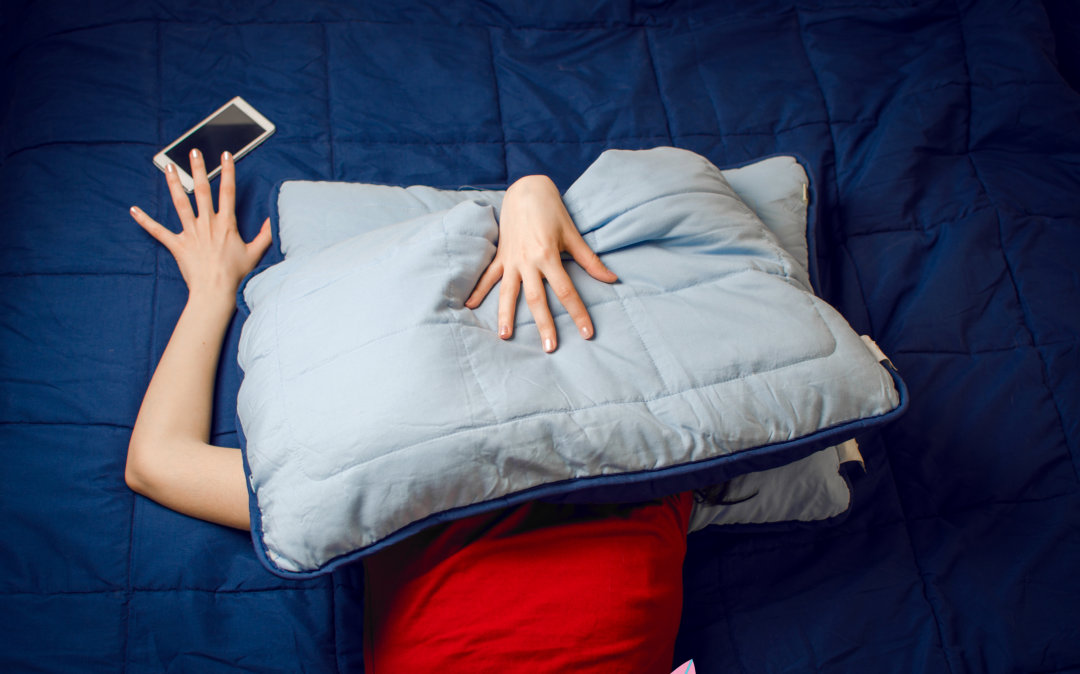You’ve heard it all before: Don’t watch TV or scroll through social media in bed. Don’t drink energy drinks too close to bedtime. Don’t nap… and yet you’re doing all this but you still can’t sleep!
So what’s going wrong? Here are some other reasons why you still might be struggling with your snoozing.
- Body clock shifts: When you hit your teens, changes happen in the brain and you start to produce the sleep hormone, melatonin, later in the evening meaning you don’t feel sleepy until the early hours. This shifts your natural circadian rhythm (internal body clock) making it out of sync. This means you may struggle with falling asleep at an appropriate hour, want lengthy lie-ins at the weekend and find it harder to wake up in the morning. This impacts on how you feel the next day- tired! Keeping a consistent routine in place will help with this.
- What time is it:Constantly clock watching can have a detrimental impact on sleep. This kind of behaviour creates anxiety – you wake at 2am and realise you’ve only five hours left to sleep, you wake at 4am and calculate there’s only three hours left until the alarm goes off. Removing the clock/smartphone from the bedroom can be a positive step in breaking a clock watching routine. However if having the clock/smartphone out of the room is likely to make you anxious, why not turn it around or cover it.
- Feeling overwhelmed:Whether its worries over schoolwork, friendships, relationships, growing up feeling anxious in bed leads to difficulty in falling asleep and staying asleep. The first step is to write down any worries, or even your homework to-do list, before you go to bed as it helps to clear the mind. There are some really nice journals out there that you can use. Talk to someone you feel comfortable with – a friend, parent, family member or teacher – as it can help put worries into perspective. There are organisations such as Young Minds who can also help.
- Hunger pangs:While we don’t recommend eating a big meal before bedtime, some people do find a small bedtime snack helpful. If you go to bed hungry, you’re likely to wake up with hunger pangs. A great bedtime snack could be oatcakes and cheese, nut butter on wholemeal toast or a small bowl of low sugar cereal.
- Light:Street lights, TV standby button, notification light on your smartphone and even digital alarm clocks could all be a factor in keeping you awake. Make sure you’re using blackout blinds or heavy lined curtains to block out outside light. Switch off the TV at the mains and don’t be tempted to charge your mobile phone in the bedroom. Even this small amount of light disrupts your internal body clock and decreases your melatonin production, making you feel less sleepy.
- Your bed is too old/uncomfortable: Everyone loves their bed, don’t they? If you don’t, maybe it’s time for a new one! Don’t be afraid to speak to your parents if you find your current mattress is lumpy and bumpy. They don’t sleep on it so they won’t know if it’s best its past or you’ve outgrown it.
- Lazy lie-ins:Trying to make up for lack of sleep with extra time in bed at the weekend throws off your internal body clock. Where possible try to keep to a regular bed time and wake up time. Our bodies (and minds) thrive on routine.
- Too much to do:Are you finding yourself scrimping on sleep because there’s not enough time in the evening to get things done, such as hobbies, sporting activities and homework? Leaving no time to wind down makes falling asleep even harder. Remember you will think more clearly, be more focused and patient if you’ve had a good night’s sleep.
- Messy bedroom:A cluttered bedroom makes for a cluttered mind. You may not be able to make the bedroom a complete clutter-free zone but try to keep it as tidy as possible. Put clothes away, dirty cups in the dishwasher and tidy your working area. Although you sleep with your eyes closed – and can’t see the clutter when you’re asleep – it’s the last thing you look at before you catch some ZZZs, which may influence any anxious or worrying thoughts.
- Lack of routine: Having a bedtime routine isn’t just for kids! If you are having trouble sleeping well, putting a sleep plan in place is the first step to getting sleep back on track. A routine prepares you for rest so it’s important that you map out time to wind down in the evening before bed. A sleep routine should ideally last around an hour each night. Doing the same thing, at the same time, before bed each evening can help to strengthen your circadian rhythm and help you feel sleepy. Try some calm quiet activities to help you to relax and unwind – that could be drawing, puzzles, listening to music or reading. Avoid screens – they’re visually stimulating and will decrease the production of the sleep hormone melatonin.


